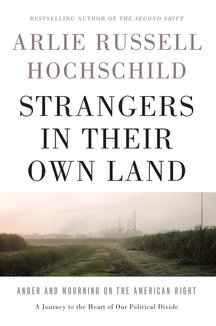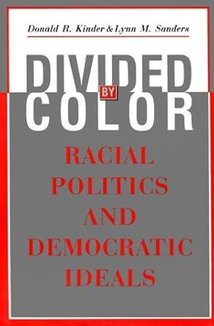Recommended Books

Strangers in Their Own Land: Anger and Mourning on the American Right
Author:
Arlie Russell Hochschild
ISBN 13:
978-1620973493
2016 NATIONAL BOOK AWARD FINALIST FOR NONFICTION A 2016 NEW YORK TIMES NOTABLE BOOK NEW YORK TIMES BESTSELLER A NEWSDAY TOP 10 BOOK OF THE YEAR A KIRKUS BEST BOOK OF 2016 One of "6 Books to Understand Trump's Win" according to the New York Times the day after the election The National Book Award Finalist and New York Times bestseller that became a guide and balm for a country struggling to understand the election of Donald Trump When Donald Trump won the 2016 presidential election, a bewildered nation turned to Strangers in Their Own Land to understand what Trump voters were thinking when they cast their ballots. Arlie Hochschild, one of the most influential sociologists of her generation, had spent the preceding five years immersed in the community around Lake Charles, Louisiana, a Tea Party stronghold. As Jedediah Purdy put it in the New Republic , “Hochschild is fascinated by how people make sense of their lives. . . . [Her] attentive, detailed portraits . . . reveal a gulf between Hochchild’s ‘strangers in their own land’ and a new elite.” Already a favorite common read book in communities and on campuses across the country and called “humble and important” by David Brooks, Hochschild’s book has been lauded by Noam Chomsky, New Orleans Mayor Mitch Landrieu, and countless others. The paperback edition will feature a new introduction by the author reflecting on the election of Donald Trump and the other events that have unfolded both in Louisiana and around the country since the hardcover edition was published, and will also include a readers’ group guide in the back of the book.
Find on:
 Amazon
Amazon

Divided by Color: Racial Politics and Democratic Ideals (American Politics and Political Economy Series)
Authors:
Donald R. Kinder
,
Lynn M. Sanders
ISBN 13:
978-0226435732
When news of the O. J. Simpson verdict swept across the United States, a nation stood divided as blacks and whites reacted differently to the decision. Seldom has the racial division that permeates our society come so clearly and prominently into view. Divided by Color supplies the reasons for this division, asserting that racial resentment continues to exist. Despite a parade of recent books optimistically touting the demise of racial hostility in the United States, the authors marshal a wealth of the most current and comprehensive evidence available to prove their case. Kinder and Sanders reveal that racial resentment remains the most powerful determinant of white opinion on such racially charged issues as welfare, affirmative action, school desegregation, and the plight of the inner city. But more than a comprehensive description of American views on race, Divided by Color seeks to explain just why black and white Americans believe what they do. Kinder and Sanders analyze the critical factors that shape people's opinion on race-related issues, uncovering the relative importance of self-interest, group identity, ideological principles, as well as racial animosity. Finally, the authors explore how the racial divide has insinuated itself into the presidential election process and examine the role of political elites in framing racial issues for ordinary citizens. The most accurate and thorough analysis of American attitudes toward race and racial policies undertaken in decades, Divided by Color is destined to become a landmark work on race in America.

The American Voter
Authors:
Angus Campbell
,
Philip E. Converse
,
Warren E. Miller
,
Donald E. Stokes
ISBN 13:
978-0226092546
Here is the unabridged version of the classic theoretical study of voting behavior, originally published in 1960. It is a standard reference in the field of electoral research, presenting formulations of the theoretical issues that have been the focus of scholarly publication. No single study matches the study of The American Voter .
Find on:
 Amazon
Amazon